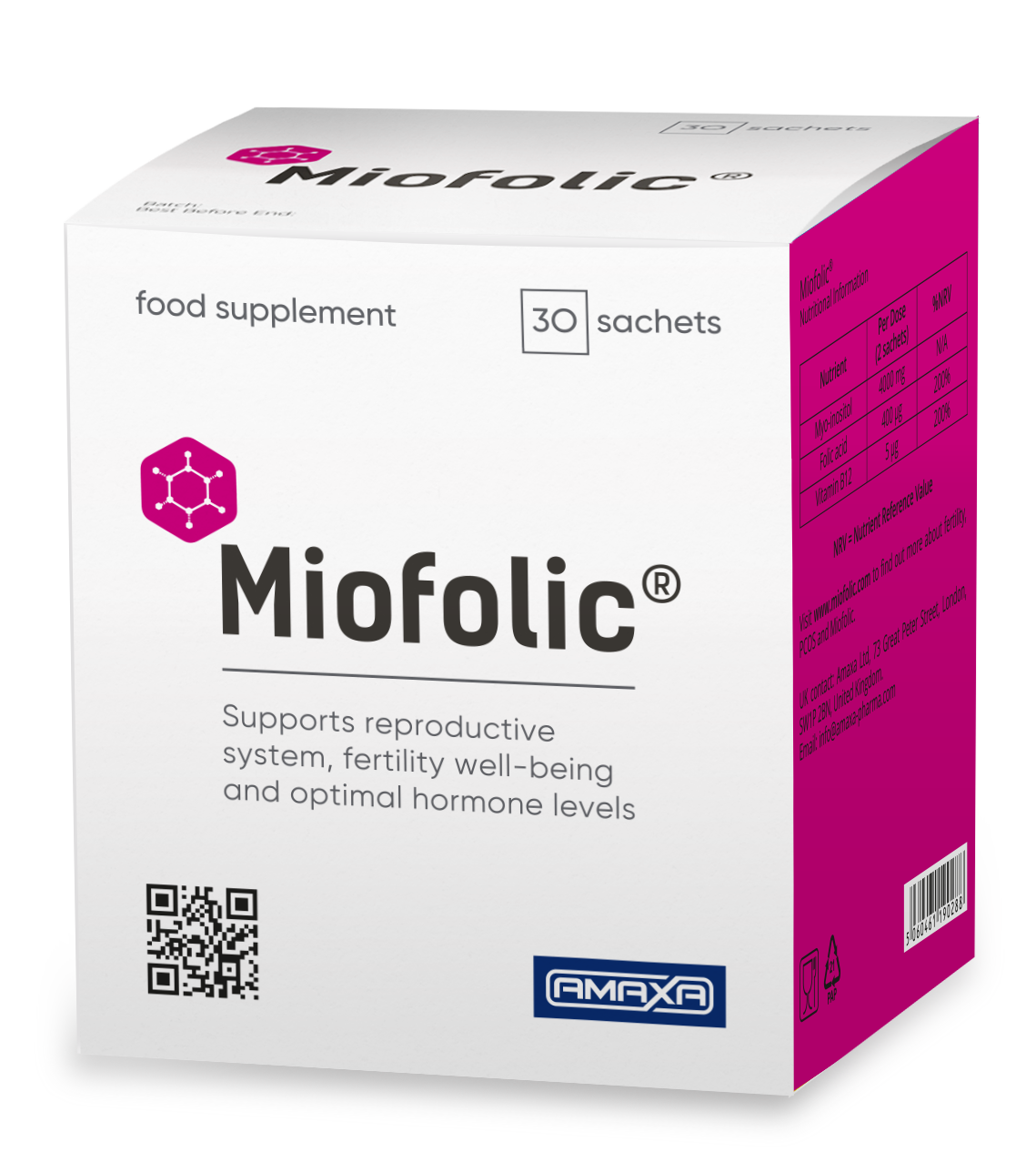Miofolic for effective recover from acne


More than 50% of women recovered from acne after 6 months of treatment with Miofolic.
Acne and problem skin: causes of occurrence and solutions
Acne is a common manifestation of an increased male hormone (androgens) level;
Miofolic reduces the level of androgens, which contributes to the disappearance of acne.
Recommended intake is 2 sachets per day for a 6-month period.
Factors provoking the skin condition deterioration
- digestive system malfunctions
- liver and intestinal diseases
- parasites in the body
- unhealthy lifestyle
- uncontrolled drug intake
- hormonal imbalance (increased testosterone level)
- stress and insomnia
- bad ecology
Unwanted hair growth
Unwanted hair growth on the face, breast and buttocks (hirsutism), for example, affects about 70% of women with PCOS.
Why does the skin get inflamed?
To understand the causes of acne, you need to understand the “scheme” of the sebaceous glands. They are close to the skin surface and are attached to the hair follicles the hair grows from. The sebaceous glands provide moisture and nourish the skin by producing sebum. When this fat is produced in excess, it mixes with the dead skin cells and clogs the duct. If such clogging takes place, bacteria living on the skin “in a quiet mode” switch to the multiplication mode. As a result, papules, pustules and other types of acne appear on the skin.
Who is likely to get acne?
Most often, acne attacks adolescents: in girls, the disease appears at the age of 14-17, and, in boys, – at the age of 16-19. Typically, the skin state returns to a healthy one by 20. However, sometimes adults also suffer from acne: there are about 5% of women and 1% of men suffering from acne. Women with gynecological diseases (polycystic ovary syndrome, hormonal disorders) are at risk. In this case, women are advised to first cure the cause, and only then eliminate consequences. During the complex treatment of POS and problematic skin, Miofolic showed good results due to myo-inositol reducing the level of testosterone circulating in the blood. Moreover, acne and problematic skin can be side effects of certain medications.
Miofolic reduces the level of androgens contributing to the disappearance of acne. The recommended dose is 2 sachets per day for 6 months.
In cosmetology, acne on the face can be conditionally divided into three stages: mild (black and white acne on the face), moderate (white and black acne, papules and pustules are localized on the back and shoulders, except for the face) and strong (except for papules and pustules, nodules and cysts with extensive distribution are observed).
Problematic skin: what is the truth?
The topic of problematic skin has always been a fertile ground for all kinds of theories:
- treating acne with diet. Proper nutrition has always been useful, but while it can become a decisive aspect in the treatment of inflammation, it’s not always a solution to the problem
- pore clogging due to hygiene deficiencies. Morning and evening washing is a mandatory ritual, but since the processes provoking acne occur under the skin, intensive washing is not a cardinal solution to the problem.
- squeeze everything out! Many acne sufferers regularly press on pimples in the hope that the skin will clear up sooner. However, the result is usually the exact opposite – this can cause scars and blemishes.
Problematic skincare
- choose special products that will help keep the skin surface healthy
- do not skimp on cosmetics; before you start testing a new product, carefully study the composition. High-quality pharmaceutical cosmetics remain the most effective for people with acne
- do not use makeup brushes or sponges to mask the problem: they leave a lot of bacteria that can make the situation worse
- do use products with SPF: although the sun has a positive effect on the skin for some time, new foci of inflammation may appear in the long term
- consult a qualified dermatologist who can choose an acne treatment program. Do not be surprised if the doctor sends you to a gynecologist – it is highly likely that the cause of problematic skin will be solved there.
Remember that self-medication can be not only ineffective but dangerous!
